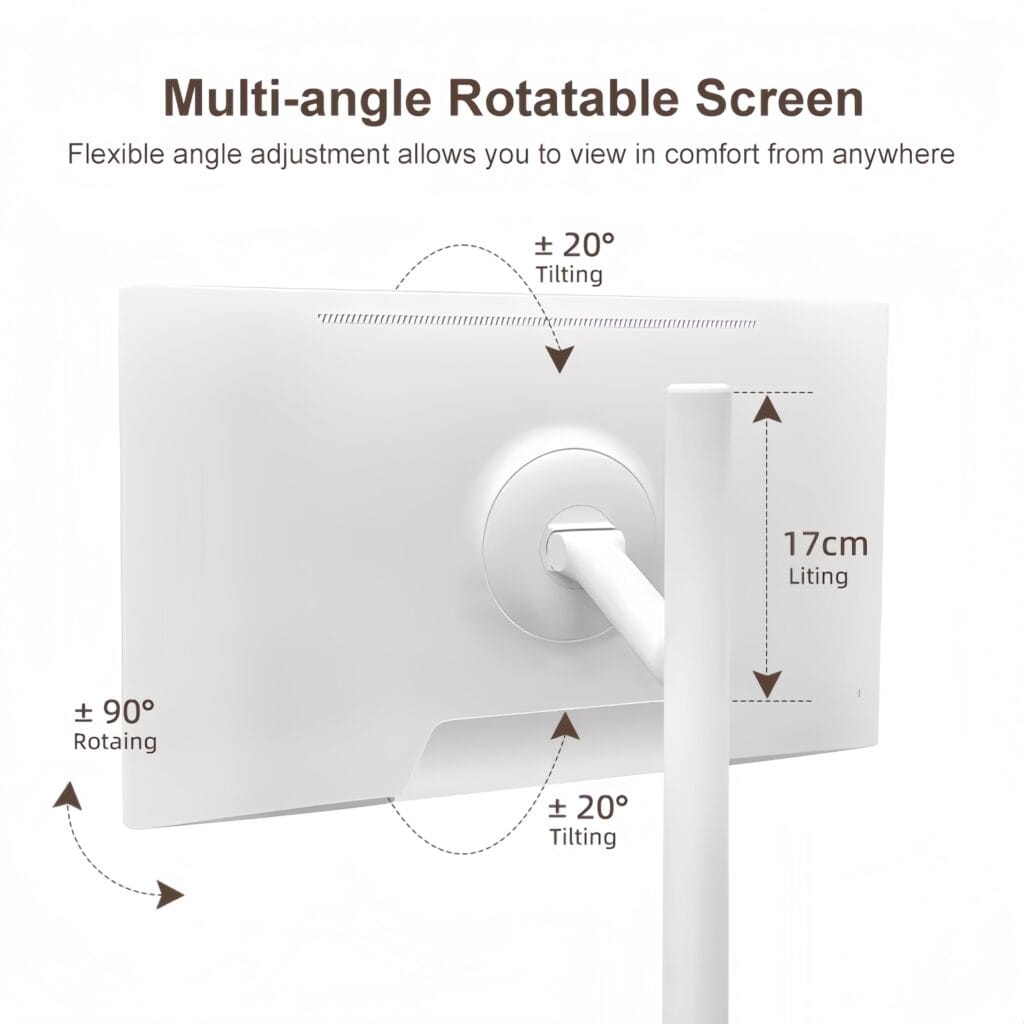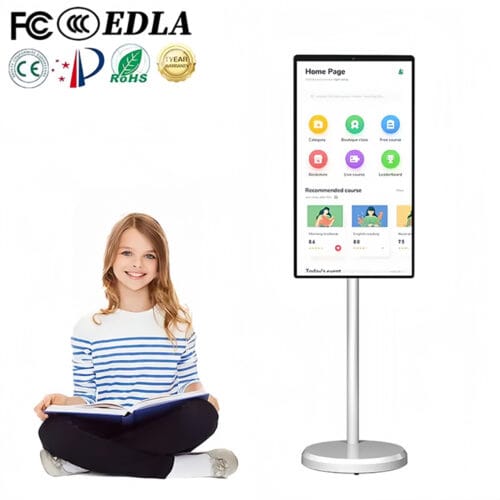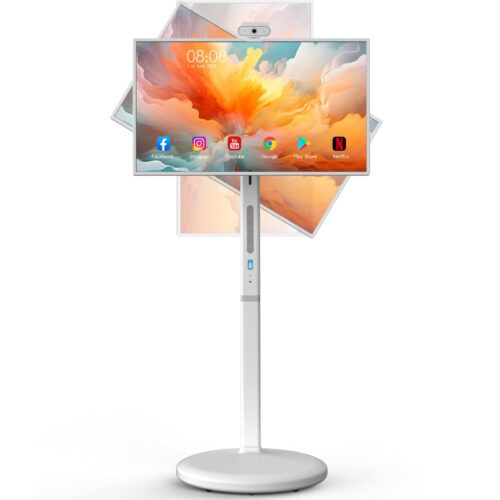Have you ever wondered what’s next in television technology? The era of the Rolling Screen TV is upon us, and it brings features and benefits that make it a standout choice over traditional TVs. Whether you’re someone who wants more flexibility in how you use your screen or simply appreciates the latest in cutting-edge tech, the Rolling Screen TV could be exactly what you’re looking for. This article will dive deep into the unique advantages of rolling screen TVs, showcasing their capabilities, applications, and the real-world problems they solve.

1. Enhanced Interactivity and Flexibility: A New Way to Watch
One of the biggest advantages of a Rolling Screen TV over traditional TV is its interactivity. Unlike a static television set, a rolling screen can be moved and adjusted according to a viewer’s preferences, allowing for a personalized and flexible viewing experience.
Customizable Viewing Experience
A traditional television is a static device that remains fixed in place, which can sometimes limit its use in various spaces. The Rolling Screen TV, however, gives users the freedom to adjust their screen setup as needed. For example:
- Height Adjustments: In some rolling screen models, the height and angle of the display can be modified, allowing viewers to achieve a more ergonomic viewing angle based on their seating position or room layout.
- Compact Setup Options: Rolling screen TVs can be retracted when not in use, which frees up space. This is particularly useful in smaller homes, apartments, and multi-purpose rooms where space is at a premium.
Enhanced Interactivity for Users
Interactive technology is now a common expectation for modern electronic devices, and Rolling Screen TVs are at the forefront of this trend. With touch-enabled screens and remote controls, users can browse and control content directly, making it easier to switch between apps, browse content, and interact with what’s on screen.
2. Superior Display Quality: Vibrant Colors, High Brightness, and Wide Viewing Angles
When it comes to display quality, Rolling Screen TVs are designed to outperform traditional LCD screens, especially in terms of brightness, color accuracy, and viewing angle.
Higher Brightness Levels
Many Rolling Screen TVs feature advanced display technologies that deliver higher brightness levels. This is particularly useful for rooms with ample natural light or outdoor settings where traditional TVs might struggle to offer clear and vivid visuals. The high brightness levels help ensure that every detail is visible, even in bright environments.
Accurate Color Representation
Thanks to their innovative display technology, rolling screens typically offer better color reproduction than standard LCD TVs. The colors on a Rolling Screen TV are more vivid and true to life, enhancing the viewing experience for movies, sports, and games.
Wide Viewing Angles for Group Viewing
Unlike traditional TVs, which often have limited viewing angles, the Rolling Screen TV provides a wider field of view. This is ideal for family movie nights or social gatherings where everyone wants a clear view of the screen, regardless of where they’re seated.

3. Versatile Content Display: More Dynamic and Less Visual Fatigue
Another exciting feature of Rolling Screen TVs is their versatility in content presentation. Unlike static traditional TVs, rolling screen TVs can continuously display a variety of visuals, helping to prevent visual fatigue and maintaining viewer engagement over longer periods.
Continuous and Diverse Content Display
Rolling screen TVs are designed to handle a wide variety of content, from traditional broadcasts to digital displays and live feeds. This variety makes them ideal for spaces that require constant content changes, such as digital signage in commercial spaces or art displays in home settings.
Reduced Visual Fatigue for Prolonged Viewing
By varying content and utilizing more dynamic displays, Rolling Screen TVs can help reduce visual fatigue—a common complaint with traditional TVs. Whether you’re watching a marathon session of your favorite show or need an extended digital signage solution, the screen’s adaptability keeps the viewing experience comfortable and less repetitive.
4. Space-Saving Design: Flexible Space Utilization
Space utilization is another major area where Rolling Screen TVs hold a significant advantage over traditional TVs. The ability to retract and move these screens as needed makes them an excellent choice for modern living spaces where flexibility is a priority.
Minimalist and Retractable Design
When not in use, a rolling screen can be retracted or minimized, which helps save valuable floor or wall space. For example, some Rolling Screen TVs roll down into a compact stand or casing, becoming almost invisible, which is especially beneficial for users who want a clutter-free living area.
Adaptability for Multi-Purpose Spaces
In multi-functional spaces like studio apartments, shared offices, or multi-purpose family rooms, a Rolling Screen TV can be deployed only when needed, then retracted to free up space for other activities. This adaptability aligns with the needs of urban living, where efficient space use is essential.
5. Advanced Technology Integration: Touch Screens, Cloud Management, and More
The technological advancements embedded in Rolling Screen TVs set them apart from traditional TVs, making them suitable for various applications beyond entertainment.
Touch Screen Functionality for Intuitive Interaction
Some Rolling Screen TVs come with touch-screen capabilities, enabling users to navigate content just like they would on a tablet. This feature is particularly useful in educational and commercial settings where users can interact directly with on-screen content.
Cloud-Based Content Management
Another unique advantage is cloud integration, which allows rolling screen TVs to be managed and updated remotely. This capability is ideal for businesses that use these TVs for digital signage, as content can be updated seamlessly from anywhere, saving time and enhancing efficiency.
Enhanced Advertiser-Consumer Interaction
Rolling screen technology enables real-time interaction and flexibility that traditional TVs can’t match. This interactive feature allows businesses to engage consumers more directly by enabling touch-sensitive responses, making rolling screens a popular choice for advertising and customer engagement.
6. High Visual Appeal: Eye-Catching and Memorable
In commercial spaces, the Rolling Screen TV stands out as an attractive display option, thanks to its innovative design and ability to attract attention through dynamic content and eye-catching movement.
Larger Screen Real Estate
With a larger surface area than traditional TVs, Rolling Screen TVs provide ample space to display high-quality visuals and information, making them ideal for storefronts, exhibitions, and other public venues. The rolling feature also makes it possible to display more content in a confined space, capturing attention without the need for multiple displays.
Repeated Play for Enhanced Brand Recall
For advertisers, the rolling feature’s continuous motion is a strategic advantage. By using dynamic and engaging visuals, brands can create memorable impressions on viewers, leading to higher recall rates. This is particularly effective in high-traffic areas, where the display’s motion captures attention and promotes brand messages effectively.
7. Superior Adaptability: Meeting Diverse Viewing Needs
One of the greatest advantages of Rolling Screen TVs is their adaptability. In an age where media consumption varies greatly, this type of screen is ideal for accommodating different viewing requirements and content types.
Perfect for Information-Heavy Displays
For instances where a large amount of information needs to be displayed—such as financial trading floors, transportation hubs, or educational institutions—the Rolling Screen TV’s continuous scrolling and expansive screen real estate make it an optimal choice.
Flexibility for Home and Commercial Use
In homes, the adaptability of a rolling screen makes it easy to switch between entertainment, home security monitoring, and work applications. In commercial environments, they can be adapted for menu boards, advertisements, and product showcases, adding both functionality and visual interest to the space.
8. Innovative Viewing Experience: A Fresh Alternative to Traditional TVs
The Rolling Screen TV introduces a novel viewing experience that attracts tech-savvy consumers and those looking for something beyond the standard television format.
A Tech-Forward Solution for Early Adopters
For individuals who enjoy staying on the cutting edge of technology, the Rolling Screen TV provides a unique and exciting alternative. Its ability to transform based on user needs and deliver diverse content in an interactive way positions it as the TV of the future.
Conclusion: The Rolling Screen TV’s Competitive Edge in the Modern Market
In summary, the Rolling Screen TV outshines traditional TVs in multiple areas, from flexibility and display quality to space efficiency and technological innovation. Its dynamic screen capabilities cater to diverse viewing scenarios, making it suitable for both home and commercial use. The Rolling Screen TV is more than just a screen—it’s a versatile solution that addresses modern consumer needs for adaptability, interaction, and high-quality visuals. As more users seek immersive, flexible viewing experiences, the rolling screen TV stands poised to redefine how we watch and interact with digital content.
ONext Product Recommendation
-
 24 inch Stand By Me TV Movable Touch Television
24 inch Stand By Me TV Movable Touch Television -
 27-Inch Portable Tv Monitor On Wheels Touch Screen 1080p 64GB Storage Smart Screen,Portable Monitor Rotating Display With Mobile Base,With Built-in Battery ,Smart Monitor with Type-C Port
27-Inch Portable Tv Monitor On Wheels Touch Screen 1080p 64GB Storage Smart Screen,Portable Monitor Rotating Display With Mobile Base,With Built-in Battery ,Smart Monitor with Type-C Port -
 Portable Smart TV 32″ 1080P Touch Screen Monitor on Wheels, Android OS 13 Built-in Battery, Detachable Camera and Stand, Full Swivel Rotation Rolling Tablet for Kitchen, Bedroom, Outdoors
Portable Smart TV 32″ 1080P Touch Screen Monitor on Wheels, Android OS 13 Built-in Battery, Detachable Camera and Stand, Full Swivel Rotation Rolling Tablet for Kitchen, Bedroom, Outdoors